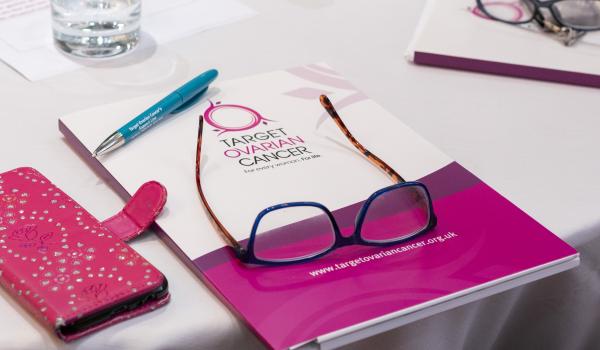RaNGO: Rare neoplasms of gynaecological origin
Who can take part
Please note - unless we state otherwise in the summary, you need to talk to your doctor about joining a trial.
This trial is for anyone diagnosed with the following rare gynaecological cancers:
Ovary
- Malignant germ cell tumours (dysgerminoma, yolk sac tumour, choriocarcinoma, embryonal carcinoma, immature teratoma, malignant mixed germ cell tumour, teratoma with secondary malignant transformation)
- Mucinous ovarian cancers
- Potentially malignant non-granulosa cell sex-cord stromal tumours (Sertoli, Sertoli–Leydig, Leydig and steroid cell tumours; microcystic stromal tumours, sex-cord tumour with annular tubules [SCTAT]).
- Small cell carcinoma of ovary, hypercalcaemic type (malignant rhabdoid tumour of the ovary)
- Adult granulosa cell tumour
- Juvenile granulosa cell tumour
- Neuroendocrine carcinomas
Adnexa
- Female adnexal tumour of probable Wolffian origin (FATWO)
- Neuroendocrine carcinomas
Uterus
- Endometrial stromal sarcoma, low- and high-grade
- Undifferentiated uterine sarcoma
- Leiomyosarcoma and smooth muscle tumour of uncertain malignant potential (STUMP)
- Uterine tumour resembling ovarian sex cord tumour (UTROSCT)
- Neuroendocrine carcinomas
Cervix
- Neuroendocrine tumours (all WHO categories)
- Unusual morphological subtypes of cervical adenocarcinoma (gastric type, mesonephric, serous, clear cell, carcinosarcoma)
- Adenoid basal and adenoid cystic carcinoma
Vulva
- Vulval cancer
This is not an exhaustive list. If you're interested in participating in a clinical trial, you should speak to your doctor about what other criteria might apply.
About the trial
Gynaecological cancer patients are all managed within 34 Cancer Centres located across the UK. These centres are only likely to see 1–5 new patients per year with rare gynaecological cancers. The low numbers of these cancers means that no single doctor or centre in the UK (or internationally) can hope to gain sufficient experience to be able to confidently treat patients with these specific types of cancer. At present doctors base their treatment on discussions with more experienced colleagues, published case reports and common sense.
The purpose of this study is to obtain more information about specific rare gynaecological cancers. The information from the study will help doctors to better understand how these rare cancers are diagnosed and managed at present so that in the future they can be more confident about what treatments to offer patients.
Information about the rare gynaecological cancer, and any other significant medical conditions, together with any treatments (now, and in the longer term) will be collected from the treating hospital and entered anonymously into the RaNGO database.
As it's very difficult to obtain blood or tissue samples from enough patients with rare cancers, it's hoped that patients in this study will agree to donate samples (from the biopsies or surgical procedures that they have already had for diagnosis or treatment) for future scientific research.
A RaNGO Tissue Bank will store all of these samples is hosted at the Human Tissue Resource Centre, St Bartholomew's Hospital, London.



